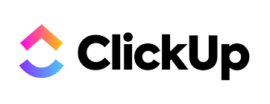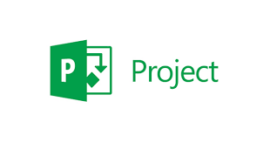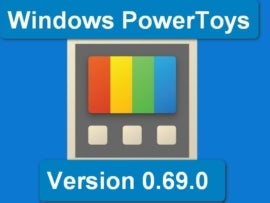-
Wrike: Best for complex projects
-
ClickUp: Best for customization
-
Smartsheet: Best for spreadsheet users
-
Teamwork: Best for collaboration
-
Clockify: Best for freelancers and small businesses
-
Microsoft Project: Best for experienced project teams
Keeping track of the time is an integral component of project management. Time tracking helps to streamline business processes and boost team efficiency. Fortunately, you don’t have to manually track time, as there are several applications that help you with project management time tracking. The challenge is to pick the right software for your needs.
SEE: Hiring kit: Project manager (TechRepublic Premium)
To help you get started, we have compiled a list of the six best project management time tracking software for 2023. We have highlighted how each software compares to the others in terms of core features, pricing, and pros and cons. We also share our methodology for compiling the list and some tips on choosing the right time tracking software for your business.
Top project management time tracking software comparison
| Software | Automated time tracking | Mobile app | Invoicing | 24/7 support | Starting price (per user) |
|---|---|---|---|---|---|
| Wrike | Yes | Yes | Yes | Only with premium plans | $9.80 per month |
| ClickUp | Yes | Yes | Yes | Yes | $5 per month |
| Smartsheet | Yes | Yes | Yes | Yes | $7 per month |
| Teamwork | Yes | Yes | Yes | Yes | $5.99 per month |
| Clockify | Yes | Yes | No | Yes | $3.99 per month |
| Microsoft Project | Yes | Yes | Yes | No | $10 per month |
Jump to:
- Key features of project management time tracking software
- How to choose the best project management time tracking software?
- Methodology
Wrike: Best for complex projects

Wrike is a project management software loaded with features including time tracking, which allows you to collect data from time spent on tasks. The time tracking tools provide a complete picture of how you are utilizing your resources for the project.
Wrike’s time management tools come built-in with Business and Enterprise plans. Some of the key benefits of Wrike’s time tracking tools for project management include the ability to automatically log work hours, generate online invoices and manage timesheets.
Pricing
- Free plan: No cost.
- Team: $9.80 per user per month.
- Business: $24.80 per user per month.
- Enterprise: Custom quote.
- Pinnacle: Custom quote.
Features
- Wrike Lock: Wrike Lock is the cloud-based security tool in Wrike. It adds an extra layer of data encryption and helps secure third-party services, account data and customer-managed data.
- Wrike two-way sync: With Wrike two-way sync, you get a fully synchronized experience between Wrike and other platforms, such as customer relationship management, data storage, single sign-on, email and other types of software.
Pros
- Excellent customer support.
- Free plan has unlimited users.
- Strength in security standards.
Cons
- Customization is limited.
- Data import process is difficult, as there are too many parameters.
For more information, read our full Wrike review.
ClickUp: Best for customization

ClickUp makes it easy to know exactly how much time was spent on a task and how much time you want to allocate to it. You have the ability to add estimates to any task and split the time between your team members. The estimates help your team understand how much work or time is expected on each task or subtask.
ClickUp also offers a variety of views including workloads, Gantt charts, timelines and calendars.
Pricing
- Free plan: No cost.
- Unlimited: $5 per person per month, billed annually, or $9 per person billed monthly.
- Business: $12 per person per month, billed annually, or $19 per person billed monthly.
- Business Plus: $19 per person per month, billed annually, or $29 per person billed monthly.
- Enterprise: Custom pricing.
Features
- ClickApps: This feature allows you to completely customize your workspace to help streamline the workflow. This means you can add or remove apps such as collaboration tools and dependency warnings.
- Workspace views: Depending on your project needs, you can view time tracking from several options including Table View, List View, Box View and more.
Pros
- Free plan offers an impressive range of features.
- Clean and well-organized interface.
- Unlimited storage in higher-priced plans.
Cons
- There is a steep learning curve.
- Customization options can be overwhelming.
For more information, read our full ClickUp review.
Smartsheet: Best for spreadsheet users

With Smartsheet, you get a variety of time tracking tools including predictive timesheets, real-time budget updates, actual versus planned hours and mobile time tracking. The spreadsheet-style project interface offers a neat and clean look.
Smartsheet is ideal for those who already have experience with spreadsheets. In addition to excellent time tracking tools, Smartsheet offers all of the tools you would expect from a top project management software such as analytics, reporting, data security and team collaboration.
Pricing
- Free plan: No cost.
- Pro: $7 per user per month, billed annually, or $9 per user billed monthly.
- Business: $25 per user per month, billed annually, or $32 per user billed monthly.
- Enterprise: Price on request.
Features
- Predictive timesheets: These are pre-filled and one-click timesheets that make it easy to track work and adjust hours as needed. The customizable settings allow users to set up the timesheets according to the level of detail required by their organization.
- Mobile time tracking: Smartsheet offers mobile time tracking, so you don’t have to wait to get to a computer or office to update the timesheets.
Pros
- Robust automation tools.
- Excellent flexibility with unlimited custom fields and sheets.
- Over 350 templates.
Cons
- No kanban views.
- Autosave doesn’t work in real-time.
For more information, read our full Smartsheet review.
Teamwork: Best for collaboration

Teamwork is considered one of the best project management software, and one of the reasons for that is its excellent time tracking tools help users stay on schedule, manage invoicing and budgeting, and use the resources to maximize productivity.
The My Timesheets tools feature a clean and simple interface, providing an easy learning curve for Teamwork. Additionally, the time tracking tools allow users to quickly view time details for the entire project or dig deeper with more specifics for a particular task. You also get to compare estimated, logged and actual hours for projects.
Pricing
- Free plan: No cost.
- Starter: $5.99 per user per month, billed annually, or $8.99 per user billed monthly.
- Deliver: $9.99 per user per month, billed annually, or $13.99 per user billed monthly.
- Grow: $17.99 per user per month, billed annually, or $24.99 per user billed monthly.
Features
- Teamwork Chat: The in-built chatting tool in Teamwork helps optimize team collaboration. You can create channels dedicated to specific tasks. It also includes a video chat feature.
- Teamwork Spaces: This is the document management feature of Teamwork. It’s a centralized hub for team collaboration. Users can create, edit and share documents with the team members.
Pros
- Variety of visualization tools.
- Easy learning curve.
- Built-in chatting tool is impressive.
Cons
- User interface feels outdated.
- Edits or modifications take time to load.
For more information, read our full Teamwork review.
Clockify: Best for freelancers and small businesses

As the name suggests, Clockify is a full-featured time tracking software. It offers tracking for billable hours, project progress, payroll and employee productivity. The software is based on the cloud, so it can be used across devices. While it may not have the advanced project management tools, it does feature invoicing, reporting, budget managing and other features you expect from a top project management application.
Pricing
- Free plan: No cost.
- Basic: $3.99 per user per month, billed annually, or $4.99 per user billed monthly.
- Standard: $5.49 per user per month, billed annually, or $6.99 per user billed monthly.
- Pro: $7.99 per user per month, billed annually, or $9.99 per user billed monthly.
- Enterprise: $11.99 per user per month, billed annually, or $14.99 per user billed monthly.
Features
- Time tracker: You can do a lot with this tool, including linking time tracking to specific projects, creating periodic time sheets, tracking other teammates’ time, and clocking in and out of work.
- Third-party integrations: Clockify integrates with several third-party applications including Evernote, Google Calendar, Asana, Jira, and Zekit.
Pros
- Unlimited users on all plans.
- Useful browser extensions.
Cons
- Reporting tools are limited.
- Lacks advanced project management features.
Microsoft Project: Best for experienced project teams

Microsoft Project is a project management solution with outstanding time tracking tools. You can track time spent on tasks and the progress of tasks toward the completion of the project.
With Microsoft Project, you can break larger projects into smaller tasks and assign to each an estimate of how long it should take to complete. You can also delegate tasks to your teammates and leave comments to help them understand what to do.
Pricing
Cloud-based solutions:
- Project Plan 1: $10 per user per month.
- Project Plan 3: $30 per user per month.
- Project Plan 5: $55 per user per month.
On-premises solutions:
- Project Standard 2021: $679.99 per license.
- Project Professional 2021: $1,129.99 per license.
- Project Server: Contact sales for pricing details.
Features
- To-do lists: Use the comprehensive to-do lists offered by Microsoft Project to stay organized. Having a digital record of your tasks can help you and your teammates stay focused on the most important and urgent tasks that need to be completed.
- Scheduling tools: Microsoft Project offers sophisticated tools for more complex projects. This includes the ability to track milestones, due dates, deadlines, progress and other details of the project.
Pros
- Full compatibility with other Microsoft products.
- Comprehensive set of scheduling and time tracking tools.
Cons
- Limited integrations.
- Steep learning curve.
Like Microsoft Project but want to see some similar options first? Check out these Microsoft Project alternatives.
Key features of project management time tracking software
Automated time tracking
This feature helps minimize the need to manually manage timesheets. In most cases, you have the ability to manually input or modify data, so you can fix any errors. Automated time tracking works in the background, so you can focus on completing your tasks.
Reporting and analytics
Reporting and analytics tools help you analyze data. For example, you can use such tools to visualize team performance and improve productivity or to track project budgets to ensure you are on schedule.
Mobile app
A mobile app offers extra flexibility to enter time tracking information into the software. It also helps view the task progress and resource allocation for projects.
Invoicing
With invoicing tools you can track billable hours. In some cases, you can also automate invoices to help you save time and effort. Other advanced features include invoice templates, recurring billing and automated reminders.
24/7 Support
Having 24/7 support provides you the peace of mind that if you run into issues with the software, you can rely on customer support from the vendor.
How to choose the best project management time tracking software?
To choose the best project management time tracking software, you need to start with an evaluation of your business needs. You want to focus on your major pain points to determine exactly what problems you are trying to solve.
Once you have clearly defined a problem, you can start considering other factors such as the size of your organization, existing tech stack, the experience level of your team and use case for the software. There are software that are geared more toward time tracking but may not offer advanced project management tools. Similarly, there are comprehensive project management software that offer basic time tracking tools.
Ideally, you want to balance the offering of the software based on the needs of your organization. This list should help you get started, but you will have to dig deeper by watching a full demo and using the free version to get a feel for the software. This will help you make an informed decision about which is most suited to your organization.
Methodology
The methodology used to compile this list of best project management time tracking software included comprehensive research and analysis. We evaluated dozens of software against the criteria set for this category. The criteria include pricing, user interface, ease of setup, core features, unique selling points and more.
We also looked at expert reviews, customer ratings and other parameters to choose the best project management software with time tracking tools. To learn more about the software, you can read our detailed reviews for the software.
Read next: 10 best resource management software for 2023 (TechRepublic)








